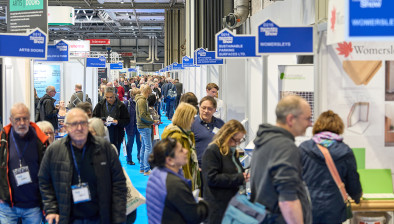Plan to improve energy efficiency of public sector buildings

A major programme to make public sector buildings more energy efficient gets underway today.
Twelve suppliers have been appointed to a procurement framework to deliver energy efficiency retrofit works and services that will improve the energy performance of the public sector.
The suppliers will ensure buildings are fitted with modern, efficient technology that supports the Scottish Government’s ambition on energy demand reduction and tackling climate change.
All Scottish public sector organisations, registered social landlords and third sector will be able to access the scheme.
The Framework will cover retrofit to public sector buildings and grounds, including a combination of building fabric, building environmental services systems and their control (e.g. heating, cooling, ventilation, lighting, water etc.) and local energy generation (including combined heat and power systems and district heating systems).
The scale of the retrofit opportunity across the Scotland is estimated to be £300 million, with associated savings to public sector energy bills of up to £30m per year.
Energy minister Fergus Ewing said: “This scheme could transform our public sector buildings and has the potential to save taxpayers millions of pounds.
“Improving the energy efficiency of all of Scotland’s buildings is a National Infrastructure Priority, and this is a significant step forward in the drive to cut energy and maintenance costs and reduce carbon emissions.
“These projects pay for themselves as energy savings will, over time, pay for the installation costs and will also deliver a variety of wider community benefit including employment opportunities and business growth opportunities for the Scottish supply chain.”
Iain MacLean, head of service at East Renfrewshire Council, said: “Having been directly involved in its development, I am very encouraged by the proposed launch of the national non-domestic energy efficiency framework next month. Energy efficiency retrofit provides a real opportunity to explore estate wide improvements that will ultimately pay for themselves.”
Fabrice Leveque, climate and energy policy officer at WWF Scotland, welcomed the drive to make public sector buildings more energy efficient but said that despite a pledge to make the energy efficiency of all Scotland’s buildings a National Infrastructure Priority last year, the objective and timescale are still to be made clear.
He said: “In the run-up to May’s Holyrood elections, we’re calling on all political parties to commit to a target for the domestic sector for the National Infrastructure Priority of improving all homes to at least a C Energy Performance Certificate standard by 2025, so that no one in Scotland will have to live in a hard-to-heat, draughty home. No other infrastructure investment can tackle climate change whilst also reducing fuel poverty, improving health and creating jobs.”








